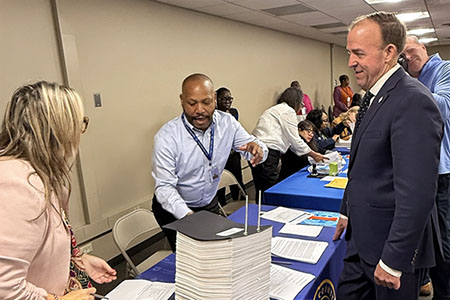Condo board sued over right to see documents – how it played out in 2003 Nov. 26, 2007 – A condominium unit owner is denied access to financial documents – told he failed to state a “proper purpose” – so he sues the president and one director of his condo board. It happened in 2000 and did not end well three years later for the board members. Francis Taghert owned a condo unit at 1440 North Lake Shore Drive in Chicago. In 1999, he sent a written request to the directors of Lake Shore Condominium Association, requesting budgetary files of the condo association’s finance committee. The president of the association, Walter Wesley, wrote back, saying Taghert could obtain the information by attending a meeting of the finance committee. Taghert sued Wesley and a director, Nat Ozmon, the following year. He said the condo board violated the condominium declaration and state law by not making the records available. He wanted $3,000 in punitive damages, to be donated by the court to charity. In court, Taghert said he was specifically seeking information regarding how the 1999-2000 budget was prepared. Defense counsel for Wesley and Ozmon disputed this, then said the requested documents did not exist. The court disagreed, ordering the defendants to produce the documents and fining them $500 per day until they did so. Eight days later, Wesley admitted they did have the documents Taghert had requested. On November 16, 2001, the trial court ruled in favor of Taghert, awarding him $2,274, attorney fees and costs. Wesley and Ozmon appealed. They complained they should not have been sued individually, that the condo board should have been sued. But in September 2003, the appellate court said condo board directors could be sued individually. The defendants said Taghert did not follow procedures set forth in the Condominium Property Act – specifically that he did not give a “proper purpose” for inspecting condominium documents. But the court said there is a “veritable dearth of case law in the state of Illinois interpreting…the Condominium Property Act and its provision directing the inspection of documents” and that “any member of an association shall have the right to inspect, examine and make copies of the records.” Proper purpose, noted the court, “is shown when a shareholder has an honest motive, is acting in good faith, and is not proceeding for vexatious or speculative reasons.” However, the purpose must be “lawful in character and not contrary to the interests of the corporation.”
|














